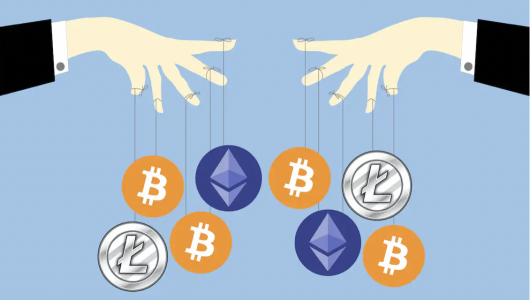SDC Rewards Member
Upgrade yours now
Australians Lost $2B To Fraud In 2021. This Figure Should Sound Alarm Bells For The Future
Australian consumers and businesses lost more than A$2 billion to scams in 2021, according to the Australian Competition and Consumer Commission’s (ACCC) annual Targeting Scams report released on Monday. This figure should sounds alarm bells – it’s more than double the $851 million reported lost in 2020.
The increase in losses was primarily driven by a doubling of investment fraud losses, from $328 million to $701 million, and a substantial increase in payment redirection fraud, from $128 million to $227 million. Scamwatch alone received more than 286,000 reports.
So what does the latest report tell us about the current state of play for fraud in Australia? And perhaps more importantly, what can be done?
The rise of crypto scams
Cryptocurrencies have played a major role in fraud losses this year. They’re largely responsible for the surge in investment fraud losses, with many victims being persuaded to invest their funds in fake or non-existent crypto schemes.The request to invest funds in a crypto scheme raises fewer red flags than a request to directly send money to someone. In the former, the victim believes they’re potentially making genuine returns.

Cryptocurrencies are still new and somewhat of a novelty, and offenders can leverage this to exploit victims. Shutterstock
Cryptocurrencies have become the most popular payment method across all fraud types. This is likely due to the difficulty of tracking crypto payments.
Cryptocurrency is also having a significant impact on romance fraud. Romance fraud itself appears steady – with victims reporting $142 million lost in 2021, compared to $131 million in 2020.
However, offenders are increasingly using these fake online relationships as a recruitment mechanism for attracting investments in fraudulent crypto schemes. This is known as “romance baiting” or “cryptorom”.
Who are the victims?
Research indicates all demographics are vulnerable to fraud, but not all are equally vulnerable. 2021 saw increased losses for older people, Indigenous Australians, people from culturally and linguistically diverse (CALD) communities and those with a disability.For example, people aged 65 and older reported $82 million lost, up from $38 million the year before. It’s clear the most vulnerable in society are being hugely impacted.
Businesses are also being decimated through payment redirection schemes, or “business email compromise fraud”. In these cases, offenders infiltrate businesses and intercept payments and invoices from customers and suppliers. This can result in severe financial losses, as seen in the real estate industry.
The ongoing impacts of COVID
The COVID-19 pandemic has been a significant disruptor since March 2020. Lockdowns and isolation requirements have driven a global shift towards online activity. Cybercrime has flourished – and fraud is no exception.The pandemic impacted fraud in several ways. There are COVID-themed frauds targeting Australians, with a focus on vaccines, personal protective equipment and contact tracing. There are also pet scams trying to capitalise on people’s desire to purchase furry, four-legged companions.
The pandemic also shifted the fraud profile of the Australian population. The continual state of anxiety that has characterised the past two-and-a-half years, coupled with financial and relational strain, has people worn-down.
This means fraud approaches that may not have worked prior to the pandemic are now more likely to succeed. And this provides a context to understanding the massive losses in 2021.
What can we expect now?
Despite the magnitude of losses reported, the sad reality is very few of these reports will result in consumers getting their money back. Even fewer will result in a criminal justice outcome. This will leave most victims frustrated and angry with the legal system having not met their expectations.Fraud poses distinct challenges for police and other agencies. Offenders don’t use their real identities and will often commit offences across multiple jurisdictions, making it difficult to catch and prosecute them.
Disruption and prevention are the key to making any inroads in reducing fraud losses. This is challenging work, and arguably more must be done given the recent escalation in losses.
A collective responsibility
It’s important to remember that behind the statistics are individuals who have lost money and, in many cases, suffered considerably. The impact of fraud isn’t restricted to financial loss; it reverberates across the physical, emotional and relational aspects of our lives.Prevention advice for individuals is to remain vigilant, ask questions and do their own research. Having strong passwords and up-to-date software are important, but will do little to deter a motivated offender.
Fraud is largely a human problem. So we need to better understand the psychological techniques used by offenders and develop targeted ways to fight back.
It’s also time the government took fraud more seriously and invested resources and expertise into reducing losses to individuals, businesses and society at large. Australia currently has no current co-ordinated fraud strategy to mitigate, prevent or respond to losses.
There is a clear need to develop better education and prevention materials that account for the diversity in victimisation. Knowing that certain demographics are more likely to be victimised highlights the need to create resources tailored to these individuals.
The latest ACCC report should be an unmissable warning sign. On its current path, Australia is headed for even greater losses than the $2 billion mentioned above. At what point will we finally act?
This article was first published on The Conversation, and was written by Cassandra Cross, Associate Dean (Learning & Teaching) Faculty of Creative Industries, Education and Social Justice, Queensland University of Technology





